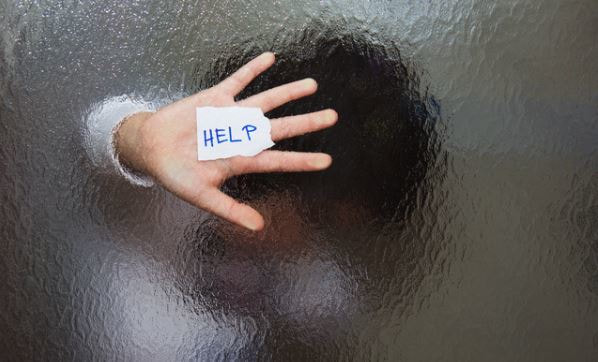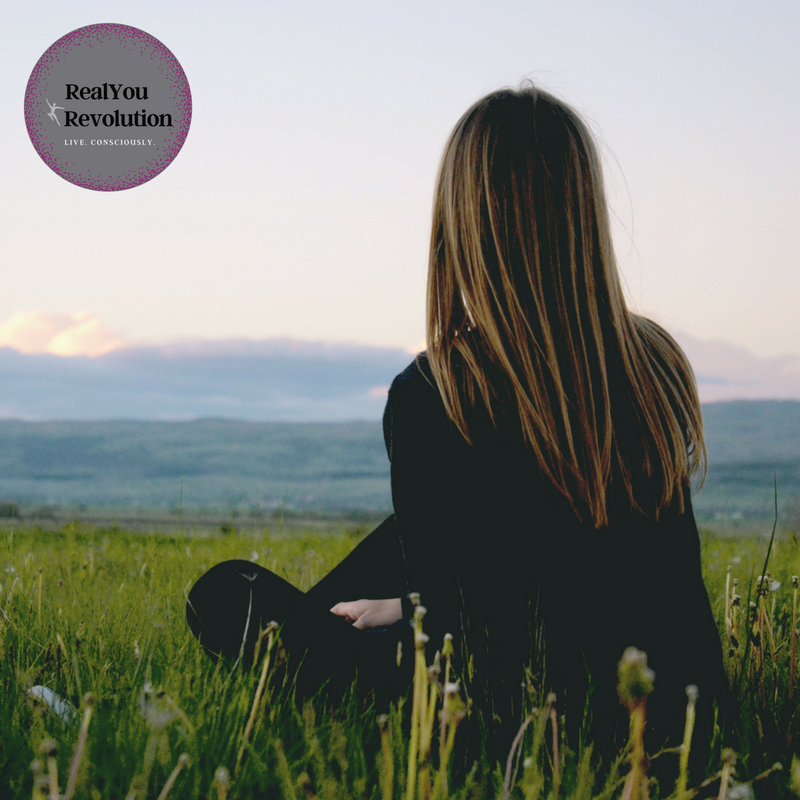|
Relapse is all over the news these days, with the one-two punch of Demi Lovato and Ben Affleck relapsing in such close proximity to each other.
Celebrities who struggle with addiction and talk openly about their recovery face a double-edged sword; the media loves to sensationalize active use and/or relapse, and a celebrity thriving in recovery doesn't get much press. The story just isn't "juicy" enough. But every time relapse is spoken about openly - celebrity or not - it's an opportunity to educate everyone on addiction, relapse, and recovery. Demi Lovato and Ben Affleck, due to their celebrity status, are a barometer for the way people respond to relapse. There is a LOT of talk in the media about their struggles, what led to their relapse, even speculation about WHY they relapsed. None of this is worthwhile, and it perpetuates the stigma around addiction and relapse. They did not fail. They are not weaker than others. They are addicts in recovery who need to get help, make adjustments, and continue on in their recovery. And they are STILL IN RECOVERY. Relapse is only an indication that there are still changes they need to make in their program, their self-care, mental health, and/or environment. There is something about the relationship they have to themselves, and their recovery, that needs to change. It's no more and no less than that. What Relapse Is, and What It Isn't A relapse is a spiral into compulsive behavior and maladaptive coping mechanisms. For someone who has abstained from alcohol and/or drugs for a period of time, the primary symptom of relapse is picking up a substance. While relapse is most commonly spoken of in terms of using a substance, relapse materializes in many forms. Any time we seek to escape our reality though unhealthy behaviors, it can be considered a relapse. It can look like falling back into a codependent relationship, an unhealthy relationship with food, gambling, an active eating disorder, self-harm, and many others. Whatever battle we are fighting, any time we revert back to unhealthy, impulsive, and escaping behaviors, we are in relapse. A relapse never occurs suddenly. Let me reiterate that: while it make look sudden, and even feel sudden to the addict, there are always warning signs and other identifiable factors that appear in advance of the physical relapse. This is both the good news and the bad news about relapse. It is a teachable experience, and how we deal with it has everything to do with our ability to continue our recovery. Here is what relapse is NOT:
Unlike the first time someone gets sober, relapse can be devastating to an addict (and their loved ones) because there is a feeling that someone "should know better". Addicts themselves can fall victim to this rhetoric, and experience deep shame that they "did it again", despite all their best intentions and despite working some kind of recovery program. This shame prevents people in relapse from reaching for help, and is - quite literally - killing people as a result. There needs to be more open and honest discourse surrounding relapse to counterbalance this feeling of failure. Many people who relapse and seek recovery again say they feel like "a bad person trying to get good", instead of the reality which is that they are a sick person trying to get well. There is no room for moral judgement when it comes to relapse. It simply doesn't apply. Destigmatizing Relapse There is a lot of dialogue now, thankfully, around destigmatizing addiction. Slowly, people are being educated on the fact that addiction is a diagnosable disease that needs to be treated like the chronic and potentially fatal condition that it is. Understanding around relapse is slower to emerge, likely because it is often as baffling to the relapser as it is to those around them. The common rhetoric most people in recovery hear is "relapse doesn't have to be part of recovery". This is a noble and worthwhile goal for anyone in recovery, but the reality looks very different. We can't battle the stigma surrounding relapse until we take an honest look at the facts. According to the National Institute of Drug Abuse , between 40-60% of addicts will experience relapse, many more than once. Relapse IS a part of recovery for approximately 50% of addicts. The silver lining is that any relapse is a valuable learning experience and an opportunity to make adjustments to one's program of recovery. A program of recovery is no different than a treatment protocol for a cancer or diabetes patient. If a cancer patient has a recurrence of cancer cells, a physician adjusts the treatment protocols: different chemo, more radiation, etc. An addict who relapses needs to do the same. They can look at what worked, and what didn't, with their recovery program and make adjustments accordingly. Relapse Response When an addict relapses, the objective is to shorten the duration and acuity of the relapse. Instead of a "how could you?", "why did you", or "you know better" responses, the questions to ask are "what kind of help do you need right now" and "what needs to change"? If someone in relapse feels they will be shamed or shunned for reaching for help, they stay in relapse. If they feel they will be met with support and an action plan to help them, they are much more likely to reach out for help. In some recovery circles, there is a "back to day one" notion, meaning that if you relapse your counter resets to absolute zero. While this may be true in the actual number of days someone has abstained from using, it is NOT true when it comes to the progress they have made in their recovery so far. Everything they learned in recovery - including what didn't work - is of value. There is an analogy for this that is poignant: if you were driving to Los Angeles from Boston and you got lost in Chicago, would you drive all the way back to Boston and start over? No. You would reroute, consult people who know how to get to Los Angeles, adjust your path, and continue on. The same is true of recovery. If relapse happens we can get help, make adjustments, regroup, and keep moving forward. What to Do If You Relapse
What To Do If Someone Asks You For Help
1 Comment
Significant progress has been made de-stigmatizing substance use disorder, but it remains difficult for many people to ask for help. People often go to great lengths to avoid actually asking another human being for help for a variety of reasons, including the fact that as children we were not taught how, nor is asking for help modeled often in modern-day society.
Familial and Societal Influences If the messages you received as a child, directly or indirectly, taught you that reaching out for help was weak, unacceptable, futile, or embarrassing, it makes sense that you would avoid doing so whenever possible. It's human nature to fear rejection, and if you have a history of reaching for help - even for simple things - and being ignored or shut down, asking for help will be even more difficult as an adult. Society bombards us with images of 'perfection' - in mainstream media, social media, television, and magazines. Everywhere we look, especially as impressionable young adults, we are imprinted with the way things "should" be, and this leads us to compare and not identify with others. Human beings are social animals, and there is an evolutionary component to why it's so hard to ask for help. To ensure we will always be welcome in our communities we develop responses, like fear and pain (physical or emotional), that let us know when we risk alienation. When our social standing in the community feels threatened, these responses are triggered. We fear losing status, being treated unfairly, facing uncertainty, and rejection. When we experience all or some of these things, it creates deep distress and our brain signals that we need to modify our behavior to community norms and get back within the fold. This deep fear of being ostracized is based in our primal longing for connection. One of the hallmark symptoms of substance use disorder is that it tells us we are all alone, that we are weak, immoral, or broken, and that we are the only ones struggling the way we do. As much as we ache to break free from the grip of drinking or drug use, we look around at society and it seems like everything comes so much more easily to other people. Our disease, coupled with our instinctual fear of rejection, can prevent us from reaching out for help. The Role of Denial Denial is also a major obstacle to asking for help. As our drinking or drug use progresses, we justify and minimize our behaviors, making it harder to see the truth of how much trouble we're in. When actively drinking or using drugs, there is also a part of our brain that doesn't want the help - that feels like drinking or drugs is the only thing holding us together (even though the opposite is true) - and wants to cling to our substance of choice like a life-raft. Asking for Help is Connection The irony is that asking for help is the opposite of alienation; it is a powerful form of human connection. If you are having trouble believing this, think about how you feel when someone asks you for help. Knowing someone loves and trusts you enough to ask you for help feels amazing, doesn't it? Would you ever reject or ignore a loved one asking you for help? Treat yourself with the same kindness you would someone you love. Asking for Help is Brave If you were raised to believe asking for help is weak or wrong, remind yourself that peoples' inability to ask for help is based in fear. Facing any fear involves courage and bravery, which is the opposite of weakness. Not everyone can understand substance use, but everyone can understand the bravery it takes to reach out to another human being for help. Focus on the ways people are identifying with your strength, as opposed to listening to the narrative in your head that wants to silence you. Five Ways to Ask for Help with Substance Use Disorder
You may have heard the term 'holding space' for someone, but what does that actually mean? We live in an instant gratification world. We are an action-oriented society full of doers. When we encounter our own struggles, or the struggles of others, our natural instinct is usually to jump into action and "help" or "fix". This isn't inherently a bad response (there are no 'bad' responses, really), but sometimes action isn't what's needed. Sometimes what we need is a compassionate shoulder to lean on, a listening ear, and the warmth of companionship. Sometimes what we really need is someone to just be with us. Holding space for someone means we are willing to walk alongside another person on whatever journey they’re on without trying to fix them, judge them, make them feel inadequate, or try to impact or control the outcome. When we hold space for other people, we open our hearts, offer unconditional support, and let go of judgement and control. Sounds straightforward, right? It's simple, but it's not easy. Why We Hide Our True Feelings How many of us have been in some form of emotional pain but when someone asks how we're doing we say "fine"? How often do we plaster a smile on our faces to mask our struggles, instead of allowing our emotions and thoughts to bubble to the surface? in some instances, of course, it's appropriate not to share. But why do we do this even with loved ones or friends who genuinely care? Maybe it is because we don't want to feel like a burden. Perhaps we don't feel emotionally safe being vulnerable. We often justify being closed-up by thinking someone couldn't possibly understand, but most often it's because we're afraid. Afraid that if we open up and don't get a compassionate or understanding response, we will feel hurt and/or rejected. So we play it safe, and keep our true emotions safely under guard. Part of the reason for this fear is that often well-intentioned people don't allow us to simply experience emotions. They minimize in an effort to make things seem okay, even when they're not. They offer solutions or try to fix us, which can only serve to make us feel more broken. They switch the topic to themselves in an effort to identify - whether they are on-point or not - which makes us feel less-than or like we're 'complaining'. Perhaps they offer platitudes, or tell us it will all be okay, which makes us feel unheard. Think of holding space for someone as becoming a safe container for them, where they can feel what they feel in whatever form that takes. We spend so much of our lives performing in some respect. At work, home, with friends and acquaintances, so much of our life requires us to be on. 6 Ways to Hold Space for Someone So how does one actually do this? How can you hold space for someone? It can be very difficult to do, especially when you love someone and it hurts your heart to see them in pain.
You hear a lot about mindfulness in any kind of recovery, whether it's from substance use, mental health conditions, co-dependency or any other behavior that isn't serving our whole health.
Some think of mindfulness as synonymous with meditation, yoga, or some other structured practice. While it's true that mindfulness can (and often does) include these practices, there are ways to incorporate mindfulness into every day life that can greatly benefit your peace of mind and recovery. It is particularly useful for people struggling with unhealthy cravings of any kind, whether for alcohol, drugs, food, sex, relationships, shopping or anything that is used to escape, distract, and numb. What is Mindfulness? At its essence, mindfulness is the art of being present and aware of any given moment. The dictionary tells us mindfulness is "a mental state achieved by focusing one's awareness on the present moment, while calmly acknowledging and accepting one's feelings, thoughts, and bodily sensations, used as a therapeutic technique." One critical element of this definition that is easy to miss, and it's at the center of mindfulness, is this: "calmly ...accepting one's feelings". Mindfulness is more than simply acknowledging thoughts or feelings, it's experiencing them without judgement and with loving kindness. Sounds simple, right? Simple perhaps, but not easy. It is astonishingly hard to stay in the moment in today's world, with all the information and distractions coming at us from every direction. It's even harder to accept the present moment - exactly as it is - without wrapping our own judgments and reactions around it. We tend to categorize experiences immediately - often imperceptibly - as "good', "bad", "scary", "uncomfortable", etc. Being mindful teaches us to distance ourselves from our own interpretations and cultivate gentle acceptance of everything exactly as it is. But.... It's Not Fair! Most unhealthy or maladaptive behaviors stem from our desire to escape and/or numb what we perceive to be undesirable thoughts, feelings and experiences. We seek to gain control - or the perception of control - over things we do not wish to experience. This is why so many of our unhealthy behaviors feel like solutions, at least in the beginning. We believe we are allowing ourselves to avoid unpleasantness of any kind by disappearing ourselves in to our substance of choice or other escaping behavior. In fact, all we are doing is removing ourselves from the moment, from reality. The problems and feelings aren't better - in fact they are usually getting worse - but we don't have to be emotionally present for them. Mindfulness is the opposite of escaping or numbing. Instead of seeking to avoid, we accept. Let's say you get into trouble at work, and your boss is yelling at you for something you don't believe to be your fault. While experiencing this undesirable situation, your brain will scramble to put up blocks to avoid feeling pain or discomfort. You may deny, or protest. You may make excuses or blame your boss for being unreasonable. These responses are all to avoid accepting the situation exactly as it is. It is especially challenging to be mindful when you feel unjustly or unfairly treated in some way. If you are being mindful about the same situation, you don't judge or avoid. You don't wrap your own thoughts, interpretations or feelings around the experience. You stay in the moment and don't seek to shield, distract or numb. You allow moments to come, and go (and they always go) without altering their reality in any way. Mindfulness and Cravings We all know what a craving feels like; it's a seemingly uncontrollable urge to turn to a substance, person, place or thing for comfort and/or escape. People usually think of cravings in terms of substance use - an urge to use drugs or alcohol - but cravings come in all forms. We can lose ourselves in relationships, chaos, drama, shopping, food .. the list goes on and on. When we're in the middle of a craving it feels like it will last forever, and that's when we're at the highest risk of relapse from the behavior we are recovering from. In reality, the average craving lasts 7 minutes from beginning to end, and its peak lasts from seconds to a minute. Instead of intensifying the urge to give in to a craving, mindfulness allows you to live with it - and through it - without the need to act on it. How do you do this, though, when the craving feels like it's got complete control? Tips for Using Mindfulness for Cravings: Like all things, using mindfulness in the face of such odds takes practice and repetition. Here are some useful tools to use to cultivate mindfulness:
|
Archives
August 2018
Categories |
Location |
|





 RSS Feed
RSS Feed